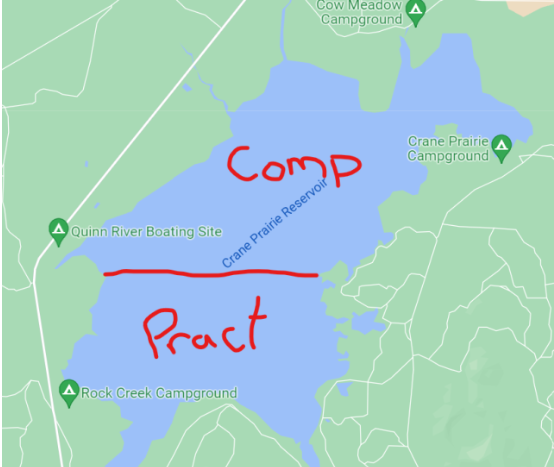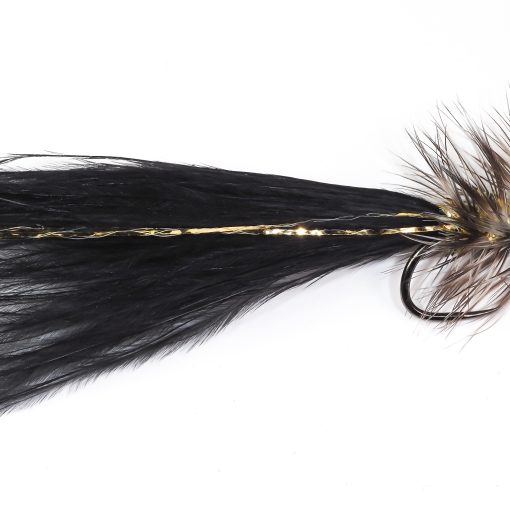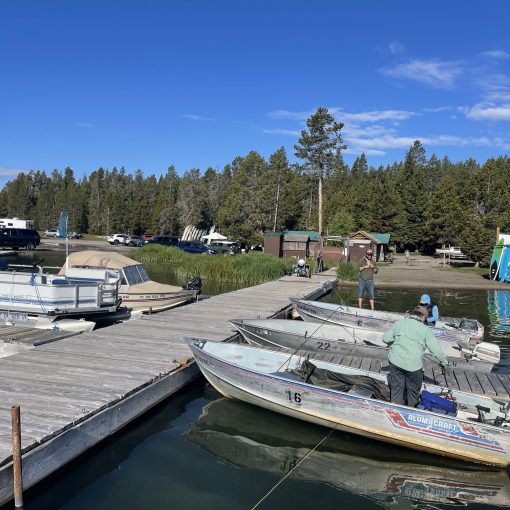This year I’m going full bore into the fly fishing competitions scene. Last year (2022) I dipped my toes into it and participated in a couple of comps in Central Oregon on two stillwater venues, Crane Prairie Reservoir and Paulina Lake. This year’s season will have competitions in Oregon, California, Utah, and Idaho and I want to at least fish in six or more over the course of the year both, rivers and lakes. Even though I have been fly fishing since I was 14, the comp rules and type of fishing is new to me and I don’t want to put the cart before the horse. In hopes of getting others to join the competitive fly fishing world and to just talk about my experience more I wanted to talk about how I prepare for a competition and how you should too if you plan to come out.
Sign up-
My first task is to sign up for the competition. For your first one you just have to be vigilant on checking Flycomps.com weekly and waiting for the next one to be posted. The other option is to find local competitors, like me, and wait for them to post links to let you know the competition registration is open. Once you go to your first one you should be able to make friends and get your own contacts that can give you heads up when a competition is supposed to happen and where. To participate in the competition, anywhere in the country, you need to be a part of the Team USA Fly Fishing organization and be current on payments. As of writing this the fee for the year is $75 so it is extremely reasonable if you plan to do a few of the comps. In the competitions I have competed in the only other cost besides travel have been boat rentals. If you plan to do a river competition or a bank fishing competition then you won’t have a boat rental to pay for so still very reasonable. Once you are part of Team USA you can register for comps in the areas you want to fish. Even if registration is full, go on the waitlist, people drop out every comp so if you want to compete there is a 99% chance you can even if you are on the waitlist. This only really applies for the Western region, this could not be the case in the North East region due to the fact there are more anglers living in that area.
Research-
Once you are locked into a comp the fun really begins. Now you need to research the river or lake you are competing at. I start with google maps personally. I look to see where the competition areas are, where I can practice with similar water, where I can camp or stay, any obstacles, or anything else that stands out to me. The competition water and surrounding water is closed to competitors from the two weeks leading up to the competition and you don’t want to violate that, otherwise you will be disqualified and not allowed to compete. Once I have all my notes about the location like, riffles, deep pools, fast water, boulders, shoals, points, island, trees, channels, bank structure, bends, drop offs, etc. then you need to look up the body of water and see if there are any blog posts, fishing reports, or message boards about it. I try to find information specific to the type of weather that is expected and the time of year. If I read a report when there was a heat wave from five years ago in June then I would apply that, not necessarily to June, but closer to August when it is normally hot to try and understand the likely fish behavior in the heat. Knowing the hatches to expect or whatever bug activity is really important as well. Does the lake have a crazy population of chironomids? Is there a consistent caddis hatch on the river? All things you need to know if you plan to fish to win. The next resource I dip into is fly shops and guides. Their knowledge won’t be competition specific, because most anglers don’t compete, but you can get a lot from them about fish behavior, where to fish, and any anomalies you should know. All of this being said, you can look up reports, maps, message boards, and blog posts but nothing beats real world experience.

Practice-
Like all competitive endeavors you can read and consume as much theory as you want, but nothing beats real world experience with boots on the ground. Once I have enough research at my bench done, I suit up and get to fishing. If you can fish the river or lake the competition is being held on that’s perfect, but sometimes you have to fish something similar. In Oregon we have a lot of “twin” lakes so if the competition is on one you can fish the other and experience very similar conditions. If you can fish a mile or two above or below the comp water on a river you are doing great. Then there are times where the comp water is so unique or time/budget won’t allow you to travel as much, you just need to practice your skills and not the water. If you think the comp will require you to fish a lot of small things or dries you should practice them. If you have never loch style fished you need to get a drogue and practice drifting. This is what I do. Most of the comps I fish are 3+ hours from me so I try and practice the typical comp water when I can, but most of the time I am fishing my local rivers, lakes, and ponds to hone my skills rather than learn a piece of water. As I write this I have some lake fishing planned out in a few weeks where I can practice fishing some different lines. I also plan to fish a section of river from a comp that was canceled last year in about a week.
Communication-
This is the hardest part, but I do think it’s important. You need to fish with other competitive anglers or any other angler if you can. It really helps to hone your skills. If you can’t because of whatever reason then you should be talking or reaching out to guys and talking about fishing or flies. I talk with about four or five other competitors throughout the year and fish with a few of them. I also fish on my own and with non competition anglers as well. The only way to get better is to challenge yourself and surround yourself with other anglers that are or want to be better than you.

In another post I’ll talk about the gear I bring, how I store and pack it, and the flies I bring as well. This is about the fishing prep and what you should do now that the competition season has begun. If you follow these steps you should be ready for any competition you sign up for no matter where you are in the country.
As always leave a comment or question down below or reach out through the contact page



